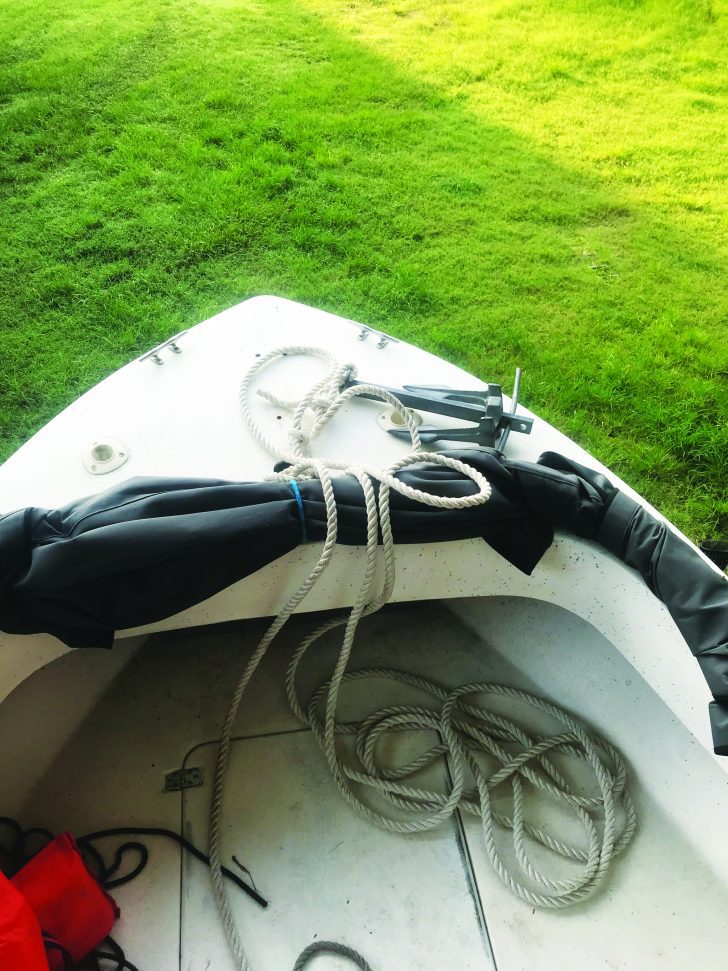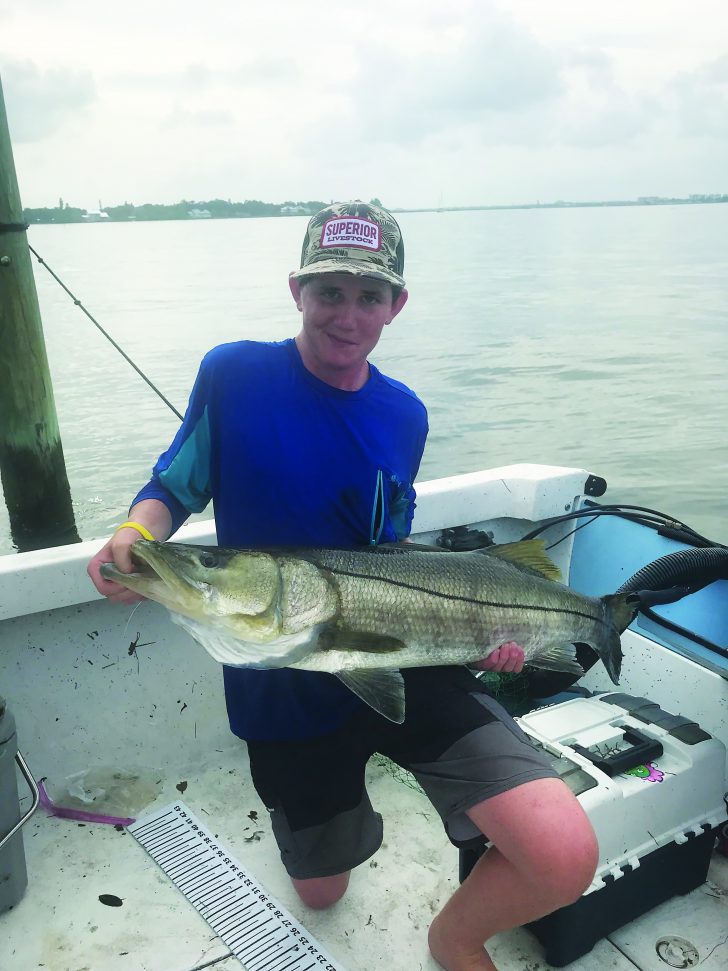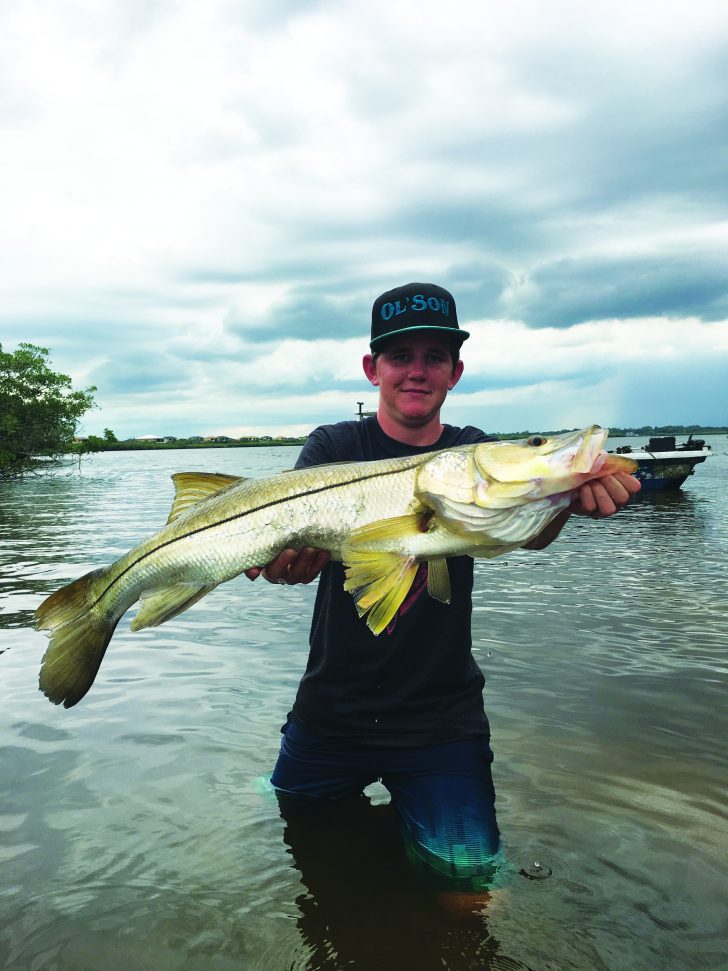by Rick Bennett
In March 2019, my two teenage sons were out in our family’s 22’ center console with friends fishing near the mouth of the Manatee River. They had been casting to docks, frequently pulling anchor, moving a short distance to the next dock, and resetting the anchor, when they decided to run around Emerson Point into Terra Ceia Bay. Instead of stowing the anchor inside the boat, my son Caleb had placed the anchor on the deck at the bow of the boat. While the boat was underway; at a speed of 20 to 30 mph, the anchor fell off the front of the boat and when the 24 foot of line pulled tight, the forward movement of the boat caused the anchor to “sling shot” up into the boat from behind. The anchor struck my son Caleb in the head, causing the metal rod of the anchor to penetrate his skull 2.78 inches, just above his right eye.

One friend called 911 and Andrew told them that he would take Caleb to the dock at the Bradenton Yacht club. Paramedics took Caleb from there to the Bay Flight helicopter that was able to land across the street. Minutes later Caleb was in emergency brain surgery at Johns Hopkins All Children’s Hospital in St. Pete. A large section of Caleb’s skull was removed so that his brain could swell without constricting the blood vessels. He was kept in a coma for five days to allow the swelling to reduce. During that time we did not know if he would ever walk or talk again.

The heroic efforts of the first responders and medical professionals at Johns Hopkins and God chose to spare Caleb’s life and give him a miraculous recovery. Ten days after the accident, Caleb walked out of the hospital to continue his recovery at home. He has had one additional surgery to replace the portion of his skull that was removed and is expected to be able to lead a normal productive life. His team has since won the “biggest youth snook” award at the Big Art Snook Tournament with a 40 incher they caught.

